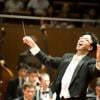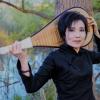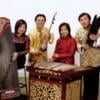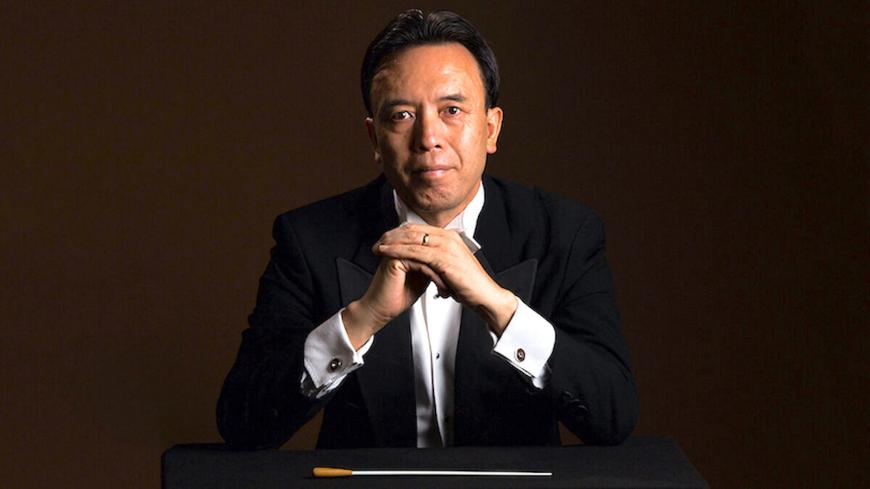
When I visit conductor Jindong Cai in a practice room a couple blocks away from Carnegie Hall in New York, he is preparing for a four-hour long rehearsal of Angel Island. The piece, composed by Huang Ruo, is a three-part oratorio for voices and string quartet, and Jindong is getting ready to direct a chamber chorus of 16 singers in learning and performing the piece. It is one of many pieces that will be performed this week at the China Now Music Festival, hosted by the US-China Music Institute, a new division that was established at Bard Conservatory four years ago. Jindong has been its director since 2017 (and is a former Stanford University professor.) This year, its festival is themed Asian American Voices, a gesture to the urgency of solidarity in the face of increasing attacks against Asian Americans in the aftermath of Covid-19, and the value of celebrating diversity within the multitudinous racial category.
As SFCV’s Janos Gereben wrote about the Oct. 22 West Coast premiere in San Francisco, Angel Island gives new musical life to a set of poems written by anonymous Chinese detainees who were held in the principal immigration facility on the West Coast. Their authors were held indefinitely on the island in the course of attempting to forge a new life. Some were held there for months and even years, and many immigrants were sent back to their countries of origin, barred by the Chinese Exclusion Act from entering.
The immigration station ended its operations in 1940 after processing 500,000 immigrants for a stretch of three decades. By 1970, it was in a desolate state. Demolition crews geared up to raze the building. But right before the building was scheduled to be destroyed, Chinese poetry, some of it written with intricate classical formal elements, was discovered etched into the walls. The structure was spared. In the intervening decades, as researchers peeled back layers of paint, many more poems were unearthed—ultimately, 200 in total.
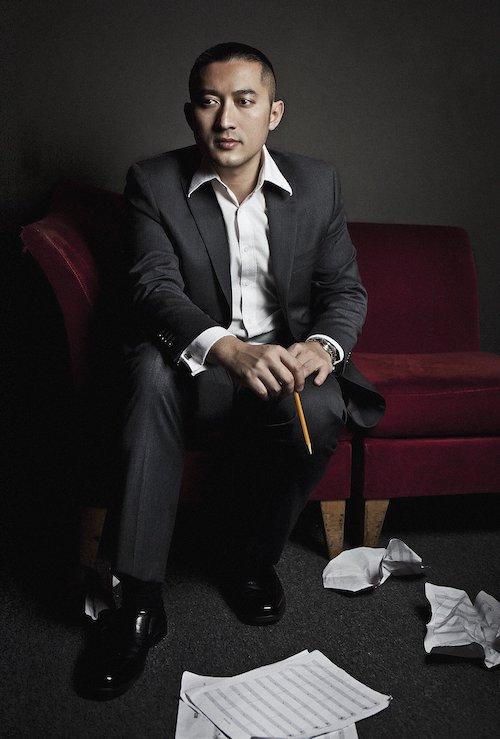
Three of those poems supply the dramatic and lyrical thrust of Huang Ruo’s Angel Island, which takes the listener from a hopeful arrival—accompanied by breezy ocean views—to a mournful elegy of a friend who dies in detention. The music that accompanies the first poem attempts to evoke a vast seascape, Huang Ruo says. In the second poem, the poet “talks about his fantasy: he would love to take revenge with a knife,” he paraphrases. “That part of the music is almost surreal, so to me, the music lifts the body out of that small room.” In the last poem, the music is somber, marking an irretrievable sense of loss.
“You can see that whoever wrote these poems are educated, cultured people. They’re not just some hooligans,” Jindong explains. Of course, in the absence of material evidence that the people who passed through Angel Island had humanistic, artistic inclinations, the historical fact of the detention center would remain just as brutal. But the poems, which unspool both geographical facts (“... we were transferred to a solitary island. / Ten li from the city”) and metaphors of abjection (“Several hundreds of my countrymen are like fish caught in a net; / Half a thousand Yellow Race are like birds trapped in a mesh”), are testament to the immigrants’ capacity to serve as witnesses to their own mistreatment.
And by doing so, these immigrants, who reached shore around a century ago, provide us with language that continues to resonate with Asian American and immigrant experience broadly today. In one breath, Jindong transitions from discussing the poetry’s sophistication to commenting on how it could have easily been written today, perhaps alluding to the detention of migrants at America’s southern border and mass incarceration. The difference, he says, is that today, a piece like Angel Island can be staged in front of a receptive audience — “a big improvement,” he is sure to note. Some things have remained the same, but other things have changed.
This cosmically simple insight about historical repetition and difference distills Jindong’s vision for the festival: to draw attention to the continuity of racism and injustice while celebrating Asian American representation in contemporary classical music today. Jindong says he approaches the question of representation in the arts in two ways. On one hand, “as an artist myself, I don’t want to be labeled a Chinese-American artist. I’m just a musician, and I think most artists want to [be labeled] that way,” he says. “But on the other hand, because we come from an Asian culture, we contribute to American culture in different ways to make art more diverse.” While Western art music first took hold in China centuries ago, Chinese classical music has had few dedicated practitioners in the West. It has become Jindong’s artistic mission to act as an advocate for Chinese music in the West, as well as hybrid cross-cultural musical compositions and artists. He bemoans the oversaturation of “dead people’s music” in concert halls. “What is the voice of our time?” he asks. “We, as artists, should have a right to reflect American society,” he says, emphatically.
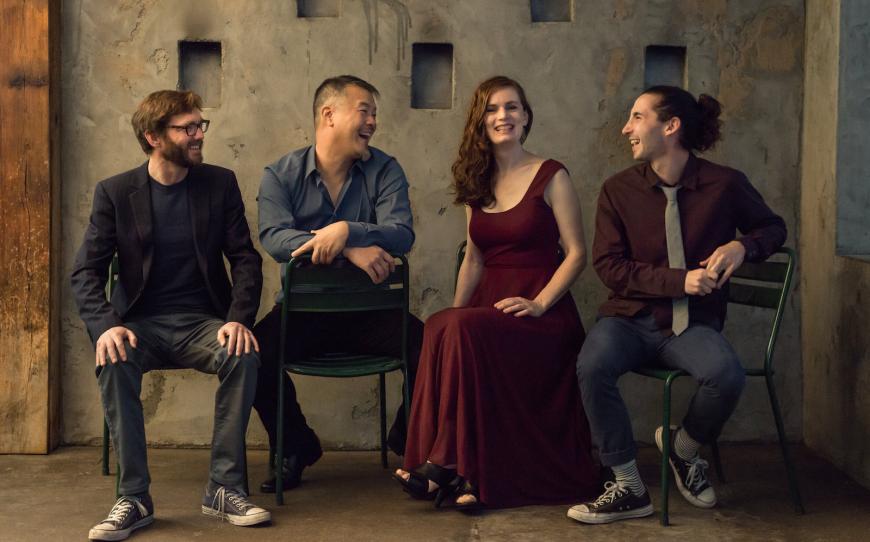
Del Sol Quartet is the ensemble-in-residence at the China Now Music Festival. The group’s violist Charlton Lee says, “I think it’s very powerful — the idea of leaving home, trying to find a new life in a new place, and not knowing if you’ll be successful; missing your home; the idea of just being in a new foreign place.” He adds that he is floored by how Huang Ruo treats Chinese when he sets it to music. While Angel Island is not the first “Western-style piece” to use Chinese language, Lee felt that many of the pieces he had encountered “didn’t quite enhance the language; it was like they’d set it to some music, but the language could have been English or Italian. It didn’t matter.” With Angel Island, the language “fits well,” he says.
In between choral movements, a narrator will read out text from newspapers and books that set the context of anti-Asian sentiment during the long era during which the Chinese Exclusion Act reigned. One section recounts the Chinese massacre of 1871 in Los Angeles, when 19 Chinese immigrants were killed, 15 of whom were lynched. The names of those who were murdered are read out, along with their professions.
Huang Ruo explains that he included such historical sources in the interregna because it is important to him that the racism marked by exclusionary immigration laws not be seen as historical anomalies detached from democratic sentiment at the time. Anti-Asian feeling, he emphasizes, “created not just the Chinese Exclusion Act, but also the Page Act and the Scott Act. They are not created out of the blue by someone in Congress but were results of building discrimination years before.”
“It’s still so very recent,” Lee says. Speaking to the discrimination he’s faced in his own life, he remarks, “I’ve dealt with it all my life … Living in California now for the last few decades, it’s been a bit more muted. But during this recent uptick, I’ve had a couple of incidents myself.”
Excerpts of Angel Island will be performed on Tuesday, October 12 in the festival’s opening concert at the Fisher Center for Performing Arts.
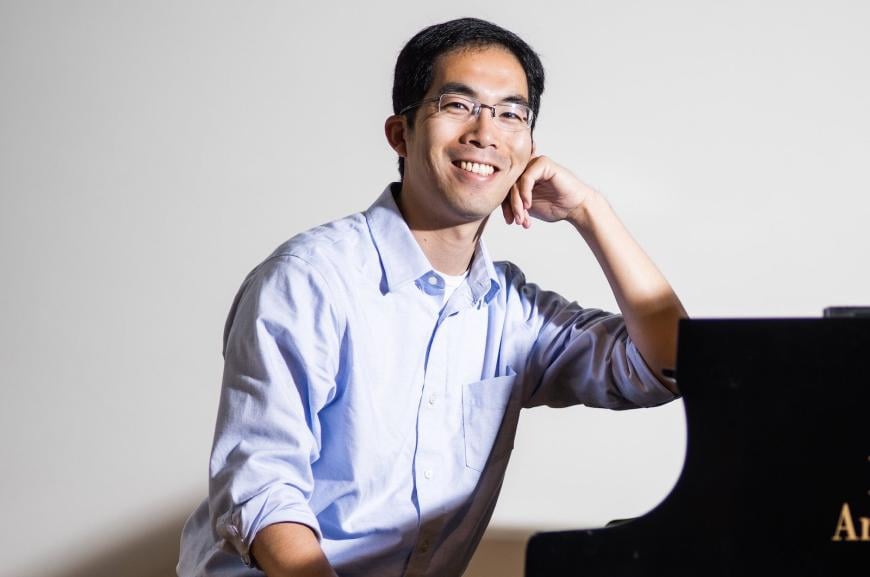
On the second night of the festival, the Del Sol Quartet will perform an assortment of shorter pieces, including Takuma Itoh’s Picture Brides. Itoh’s piece, which is scored for the conventional quartet instruments plus a ukulele (which will be passed between the violinist and violist), was inspired by a chapter in the history of Japanese immigration to Hawaii. Through matchmakers, immigrant men chose Japanese brides with photographs they were supplied with to marry. But when these brides made the long journey across the Pacific, they often found that their promised grooms were nowhere to be found or that they had been the historical equivalent of catfished. Many women discovered that they would have to work long, hard days alongside their husbands on sugarcane plantations under the Hawaiian sun. Although Itoh does not have any blood connection to picture brides, he felt it was a story he could relate to. “They look like photos of my grandparents. It was the first time, looking at American history, that I could say — ‘oh, this could have been me!’ Or this could have been my grandparents!” When the piece premiered in Hawaii, Itoh heard from a number of descendants of the picture brides about their family histories.
On the same night, Guggenheim composer fellow and electric komungo inventor Jin Hi Kim will stage the world premiere of A Ritual for Covid-19, a “community purification” ritual that borrows elements from the Korean shamanistic ssitkimkut ritual. Traditionally, the shaman who leads the ssitkimkut ritual is a woman, and Kim will step into that role as the officiant of the ritual. “If you have a bad death, like from Covid, it’s not natural. People can’t even see their loved ones… because of the virus,” she explains. Such deaths are traumatic, not only for the dead soul leaving the world but also for the family members and friends who are left behind. Kim’s ritual, which includes unfurling knots on a 25-yard white cloth and involving the audience in playing singing bowls, is meant to cleanse the dead and facilitate the spiritual transition of their souls. During the ritual, she will play her signature instrument the electric komungo, sing, and play a suspended drum.
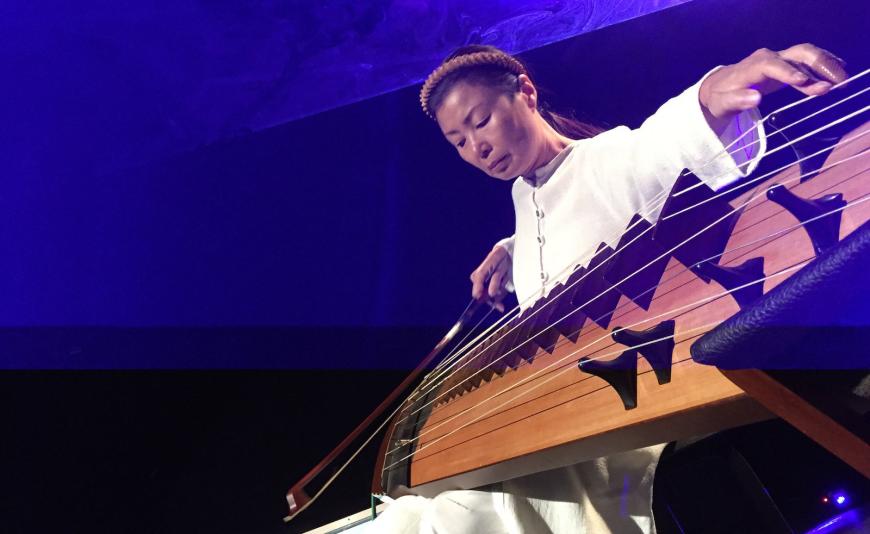
Kim says that in 2020, she couldn’t think of writing music on anything that didn’t relate to the pain the world was experiencing. Unlike the Western tradition, in which the audience has evolved to become primarily an observing one, Kim stresses that in Asian performance practice the audience always has a key participating role in the piece. Furthermore, she says, “in the Asian tradition, music always functions for healing problems, especially social problems. It is a kind of therapeutic performance for so many people in the face of community pain,” she says.
In a way, changed aesthetic attitudes in the aftermath of the pandemic have presented Kim with the opportunity to do this ritual in the United States. For decades, she says, she has bifurcated her musical performances: onstage performances in the West, ritualistic performances when she visits Asia. “I didn’t do work with the community [in the West] because there was no platform for me to do so,” she explains. But she thinks that the pandemic has made people more receptive to the many functions of music, including healing.
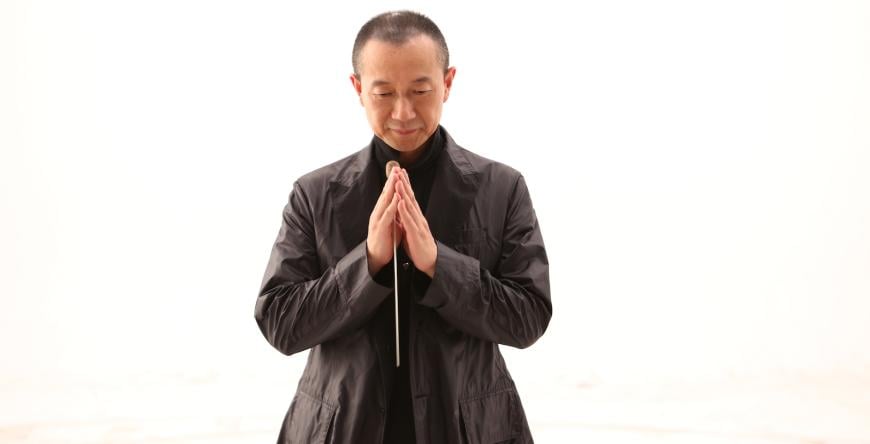
On Saturday, October 16 at 3pm, Asian American Voices: Symphonic Portraits, with The Orchestra Now will feature the works of Bard Conservatory dean Tan Dun, and excerpts from Huang Ruo’s 2014 opera An American Soldier, which retells the harassment and racism that led to army private Danny Chen’s suicide in Afghanistan. The week-long festival at Bard Conservatory culminates in a livestream of excerpts from Angel Island and a recording of the previous night’s performance.
As I sit and observe the Angel Island rehearsal, Jindong coaches the chamber chorus through the correct pronunciations of the pinyin words they read before them. He notes that one of the main challenges for Mandarin language learners — properly intoning the words — is conveniently nullified by singing them instead of speaking them. He cites a Harvard music professor’s academic contributions on how composers can write music that fits Chinese lyrics. Between these asides and other ones on the historical context of Chinese exclusion in the early 20th century, Jindong’s rehearsal is a manifestation of the creative and critical energy that flourishes when Asian American voices are afforded leadership in classical music today.



